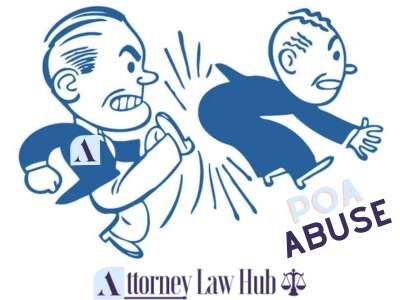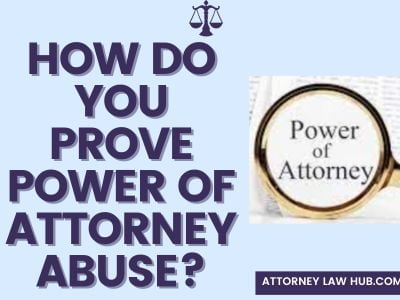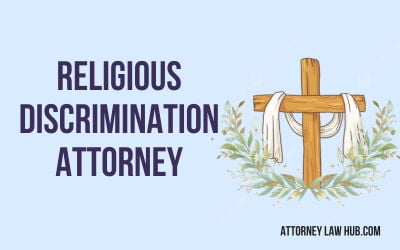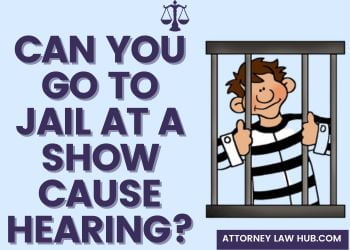A power of attorney is a legal document that assigns authority to someone to act on your behalf; it is commonly used in cases where a person can lose the capacity to think. When the assigned individual, referred to as the agent, abuses their power, abuse takes place
To prove power of attorney abuse, you’ll need to gather evidence that shows someone with power of attorney has used their authority improperly.
This can involve doing acts that are not in the best interests of the person they are supposed to be assisting, neglecting the person they are supposed to be helping, or financial exploitation. Begin by recording any transactions that seem suspicious, maintaining track of financial transactions, and, if you can, obtaining witness statements.
A lawyer with expertise in elder law or estate planning should also be consulted; they can help you navigate the legal procedures necessary to stop the abuse. In order to protect the rights and security of vulnerable individuals, quick action is essential.
Example of Power of Attorney Abuse
Understanding these instances is essential to preventing and dealing with the power of attorney abuse, which can take many different forms. An example of a typical situation is given as follows:
Say an old person has become too sick to manage their finances; therefore, they have given their child power of attorney. As soon as the youngster is given this authority, they begin to abuse it for their own benefit. Without the elderly parent’s knowledge or approval, they may start by stealing money from their bank accounts. This may include taking out cash without authorization, creating checks for personal use, or even moving assets and property into their name.
In addition, the abusive person may use the elder’s wealth for their own gain while ignoring the senior parent’s basic necessities, such as suitable housing, healthcare, or even sufficient sustenance.
This is a heartbreaking incidence of power of attorney abuse that involves both money exploitation and neglect, both of which put the vulnerable person at serious risk.
To preserve the rights and welfare of individuals in similar situations, it is important to identify these indicators and act quickly to take legal action.
Signs of Power of Attorney Abuse
It is essential to identify signs of the power of attorney abuse to protect individuals who are at risk. The following are important signs to look out for:

Unexplained Financial Changes:
Pay attention to any rapid or illogical changes in the individual’s financial circumstances. This can involve money going missing, transactions going unapproved, or substantial adjustments to their properties.
Isolation:
It may be a red flag if the person starts to distance themselves from friends and family more and more. To stay in control, the abusive person could attempt to restrict or manage their social connections.
Neglect:
It is disturbing when there is noticeable disrespect for the person’s physical health or living circumstances. This could involve inadequate food and nutrition, unsatisfactory living conditions, or a lack of healthcare.
Confusion or Fear:
It may be a sign of unfair influence or abuse by the designated agent if the person looks uncertain about their finances or is afraid to talk about them.
Unusual Legal Changes:
Be careful if you discover any unexpected modifications to wills or trusts that unfairly benefit the agent.
Lack of Transparency:
An agent may be concealing anything if they refuse to give updates on the person’s affairs or avoid disclosing financial information.
Force:
It’s a serious red flag if you believe the person is being forced or pushed into making financial decisions against their will.
Steps to Take if You Suspect POA Abuse
To protect the vulnerable person, you must act quickly and appropriately if you suspect abuse of a power of attorney (POA). Here is a list of things to do:
Collect Evidence:
Keep track of any indications or events—like financial irregularities, negligence, or excessive influence—that give rise to suspicion. Maintain a record of all money transactions, and if you can, get witness statements.
Speak with an attorney:
Get legal counsel from a lawyer with knowledge of estate planning or elder law. They can advise you on the precise actions to take in light of your circumstances.
Contact Authorities:
Report any significant evidence of abuse to the appropriate authorities, such as law enforcement or adult protective services. If required, they can launch investigations and file complaints.
Recall or alter the POA:
If you’re the principal or a worried family member, you might want to reconsider withdrawing or altering the POA. See your lawyer for advice on how to proceed legally in order to accomplish this.
Request an Accounting:
Ask the agent for a thorough financial accounting if you have any suspicions about financial malfeasance. This can help make any differences more clear.
Seek Medical Evaluation:
To ascertain the person’s physical and mental health, set up a medical evaluation if abuse or neglect is a worry.
Engage in Negotiation:
In certain situations, family members and the representative might settle issues in order to ensure the person’s best interests.
Observe the Situation:
Keep an eye on things and record any abuse or neglect that may be happening. This could be significant in court cases.
Assist the Vulnerable Individual:
Make certain that the POA’s primary focus is secure and gets the attention they require. This can entail looking for different living situations or carers.
Follow Legal Processes:
Work together with your attorney to ensure that all legal procedures are followed and that you take the appropriate legal action to protect the person and make corrections.
Keep in mind that the actions you take may change based on your unique situation and the regulations that apply to you. In order to properly address the power of attorney misuse, seeking professional legal advice is essential.
How To Revoke a Power of Attorney?
A power of attorney (POA) must be revoked carefully and in accordance with the law. This is how you do it:
Examine the POA document:
To begin with, go over the POA document and make sure you understand the revocation procedure it outlines. Information on revoking authority can be included in certain POA documents.
Make a Revocation Document:
You must write a revocation document in the event that the original POA agreement did not include a revocation process. This should be a concise and unambiguous declaration of your intention to cancel the POA.
Important information to include:
Provide your name, the agent’s name, and pertinent data regarding the original POA, including the date of execution, in the revocation paperwork.
Notarize the revocation:
To add a degree of legitimacy, it is essential to have the revocation document notarized. Go see a notary public, show them your identification, and sign the document in front of them.
Alert the agent:
Give written notice to the agent that you are withdrawing their authority. A copy of the revocation paperwork should be sent to them by certified mail with a return receipt to provide delivery confirmation.
Notify relevant institutions:
Notify the banks and other relevant institutions, such as the agent’s place of employment, of the revocation if the agent has been utilizing the POA for financial transactions.
Document Revocation:
Revocation documents may need to be recorded with the county clerk’s office or another relevant body, depending on your jurisdiction.
Notify interested parties:
It is advisable to notify any additional parties, such as family members, who may have an interest in the revocation.
Update Legal Documents:
Make sure that all wills, trusts, and healthcare directives that make reference to the original POA are updated to reflect the revocation.
Is Abuse of a Power of Attorney a Criminal Act?
Yes, abuse of a power of attorney (POA) can be considered a criminal act. A POA holder who commits acts of fraud, financial exploitation, or theft may face criminal charges for misconduct, forgery, fraud, elder financial abuse, theft, or criminal neglect, depending on the circumstances of the abuse and the relevant laws in the area.
An investigation by law enforcement or Adult Protective Services is necessary when there is a suspicion of POA abuse. Sentences, probation, or even imprisonment may be imposed legally for this kind of abuse. To successfully address and resolve incidents of POA misuse, it is necessary to seek help from legal authorities and skilled estate planning or senior law professionals.
Can an Agent Pay Themselves for the Work Done Under a Power of Attorney?
Yes, an agent appointed under a Power of Attorney (POA) can generally be compensated for the work they perform on behalf of the principal, as long as the POA document explicitly authorizes such compensation.
The POA should contain a detailed description of the terms of payment, including the amount and mode of payment. It’s crucial that any payment be fair and in the principal’s best interests, though. Due to their contractual obligations, agents must operate in the principal’s best interests at all times.
As such, any pay they receive cannot be excessive or harmful to the principal’s financial stability. In situations where state laws may apply and the POA document makes no mention of compensation, it is necessary to obtain legal counsel in order to ensure compliance with applicable laws.
What To Do if You Suspect a Sibling of Power of Attorney Abuse?
Power of attorney Disagreements between siblings usually depends on a number of important issues, such as choosing the agent, making decisions, managing finances, and making healthcare decisions.
These conflicts can put pressure on familial relationships and even result in legal disputes. Establishing a framework for decision-making and accountability as well as having candid, compassionate talks are essential for families to take proactive measures to address these difficulties.
Experts in financial planning or superior law can offer helpful counsel in settling these conflicts while putting the needs of the person named in the power of attorney first. Families can work together to handle these difficult situations more smoothly and productively by encouraging cooperation and understanding.
Conclusion
To sum up, POA problems are difficult and have the potential to cause disagreements, conflicts, and, in the worst situations, court legal proceedings. It is imperative that all parties concerned address these circumstances with candor, understanding, and a clear grasp of the agent’s rights and responsibilities.
Elderly law and estate planning attorneys can offer vital advice when handling POA-related matters, such as revocation, abuse, or just paying for the agent’s services. The person covered by the POA should always have their safety and goals at heart, and aggressive family cooperation and communication can make handling these delicate situations much easier.




